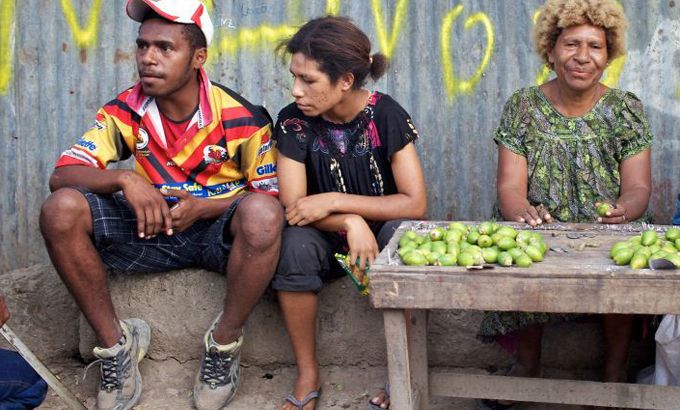
Battered and Bruised
How can Papua New Guinea curb one of the worst rates of domestic violence in the world?
Family violence has reached epidemic levels in Papua New Guinea, the South Pacific’s largest nation.
Two out of three women experience domestic violence and 50 per cent of women have experienced forced sex or gang rape in the South Pacific’s biggest country.
In PNG’s Western Highlands Provinces, 97 per cent of women surveyed by an NGO said they had been attacked by male family members. From middle-class households in the capital Port Moresby to villages where tribal law rules an estimated one million children live in volatile family environments.
On a fact-finding mission to PNG in March, the UN’s special rapporteur on violence against women described the problem as a “pervasive phenomenon” and urged authorities to address traditional practices that are harmful to women.
Any plea for justice usually falls on deaf ears because the concept of domestic violence does not exist in a country of 800 tribes and languages. Many men hurt women with tribal tools like bush knifes and axes, leaving them disfigured.
It is also very rare for family violence cases to be brought before the court. Most assailants are briefly kept in a police cell and then released.
However, the country’s chief justice said violent acts against women and children account for half of the criminal workload in Papua New Guinea.
The nation’s police force are ill-equipped and underskilled to deal with the problem – only three of the nine main stations in Port Moresby have units dedicated to tackling family violence. There are few night patrols and police officers have been known to turn victims of domestic violence away saying the violence is a family matter.
Fed up with the constant brutality, women have set up safe houses and daycare centres with the help of UNICEF to try and keep families safe.
PNG’s government and international NGOs have also set up welfare and protection centres to provide refuge to thousands of battered women. Social media, radio and innovative community policing projects are being used to tackle the rising rates of violent acts in family homes.
They are welcomed initiatives but there is a lack of human and financial resources. The UN recommends the programmes need to be replicated in the country’s rural districts where women are most vulnerable. PNG remains a tribally-oriented patriarchal society, where brutality in the community is a way of life.
Domestic violence campaigners say more needs to be done to educate men in PNG. In a country with poor health, corruption and economic indicators, men feel disenfranchised and often resort to joining raskol gangs and taking part in antisocial behavior like drinking.
But it appears that until all communities within this tribal nation recognise the causes behind the violence, the safety and dignity of women in the South Pacific will continue to be at risk.
101 East looks at the plight of Papua New Guinea’s women and asks what can be done to curb one of the worst rates of domestic violence in the world. Why are so many women being assaulted in the South Pacific?
101 East airs each week at the following times GMT: Thursday: 2230; Friday: 0930; Saturday: 0330; Sunday: 1630. Click here for more 101 East. |
